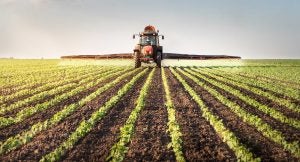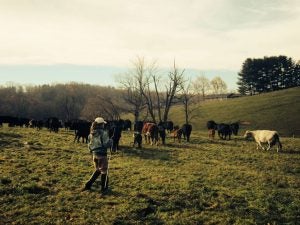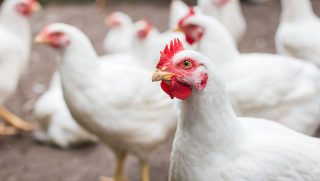Almost everyone in agriculture understands just how important this industry is. But not everyone places such a high value on agriculture literacy and ag education. With a rising population estimated to reach nearly 10 billion by 2050, ag education efforts are becoming increasingly important.
Before we begin, let’s define agricultural literacy. Agriculturally literate people are able to understand and possess basic knowledge of the agriculture, food, fiber, and natural resource systems. They are also able to communicate the value of agriculture and identify issues related to ag.
Here are 10 reasons that ag education and ag literacy are important:
1. People are unaware of career opportunities
When you ask people what they think of when they hear the word agriculture, farming tends to come to mind. Many people (especially students) don’t always think of ag careers in business, science, engineering, food production, and so much more. We need ag education to show students new career opportunities. In fact, Purdue University estimates that there is an average of 59,400 openings annually in the agriculture, natural resources, and food sectors. We need people to fill these positions.
2. There are misconceptions about ag
We all know that there are misconceptions about GMOs being bad, farmers using too many chemicals, “factory” farms being inhumane, agriculture’s role in climate change, and more. Ag education programs teach students the truth behind these misconceptions and continued ag literacy efforts reach others to tell them current information about new technologies and misconceptions.

3. Agriculture is important to learn about
In general, agriculture is important to learn about simply because people should know where their food comes from. If you start talking to people, some of them will tell you that food comes from the grocery store. This might be where they obtained their food items, but they don’t know the processes that it took to bring their food from the farm to the grocery store.
4. We need to protect food security
Without people who understand the food production system, our food system is in jeopardy. We need people to advocate for agriculture, enact policy, and be educated consumers. If people who are not agriculturally literate are making changes to the food system through policy and with their votes, food security is at risk.
5. It creates educated consumers
At the grocery store, consumers are faced with a multitude of choices. To buy organic or conventionally farmed? What does the “hormone free” label on my meat mean? People go to the grocery store and buy food, but they can’t explain why they are buying the products that they are beyond basic reasons like price point. Consumers should know the basics of food labeling and the impact that different food production methods have, and be able to make an educated decision on what is right for themselves and their families.
6. Economically important
Agriculture is vital to a strong economy. Today, ag is responsible for over $8.6 trillion — or nearly 20 percent — of the United States’ economic activity, with agriculture directly supporting nearly 23 million jobs (which is 15 percent of U.S. employment). With agriculture playing such a big role in our economy today, people should have a basic understanding of the value that ag brings to the table.
7. Basic life skills
Farm kids and people who have grown up in ag are arguably well ahead of others their age when it comes to life skills (that’s just one reason that FFA and 4-H are so popular). Agriculture and ag education provide many life lessons like discipline, compassion and responsibility, as well as practical life skills like public speaking, how to prepare food, operating heavy machinery and so much more. The life lessons and skills to be gained from agriculture are almost infinite!

8. Aging ag sector
The ag industry is aging. The average age of a farmer is 57.5 years old and this number keeps increasing. As older farmers retire, we need to make sure that the next generation is prepared to take on the important role of providing food and other agricultural products to a growing population.
9. Ag has a big impact on quality of life
Without agriculture, we wouldn’t have tires, houses, clothing, books, cosmetics, footballs, medicines, and more. Agriculture provides our food, fiber, lumber, and many byproducts that are used to create items we use every day. Almost everything we eat, wear, and use comes from a plant or animal. Agriculture has a big impact on quality of life, and ag education is important to ensure people have a basic understanding of this.
10. People should be able to communicate the value of ag
There are many people who aren’t able to communicate why agriculture is important. At the end of the day, the goal of ag education is to create an agriculturally literate person who should be able to tell others why agriculture is valuable and how it impacts themselves and the world around them.
As you can see, there are a lot of reasons that we need ag education and ag literacy. To ensure a successful future for a growing population, we need increased efforts to make sure we are creating an agriculturally literate population.
Michelle Miller, the “Farm Babe,” is an internationally recognized keynote speaker, writer, and social media influencer and travels full time to advocate for agriculture. She comes from an Iowa-based row crop and livestock farming background and now resides on a timber farm in North Central Florida.



